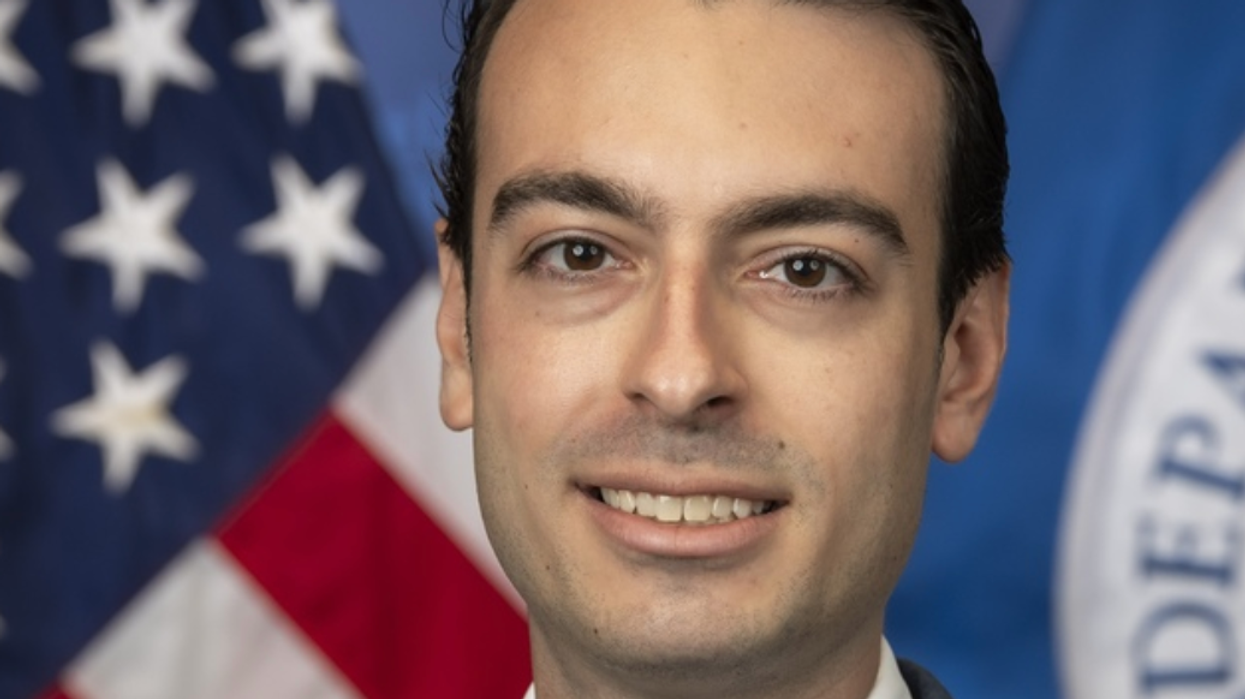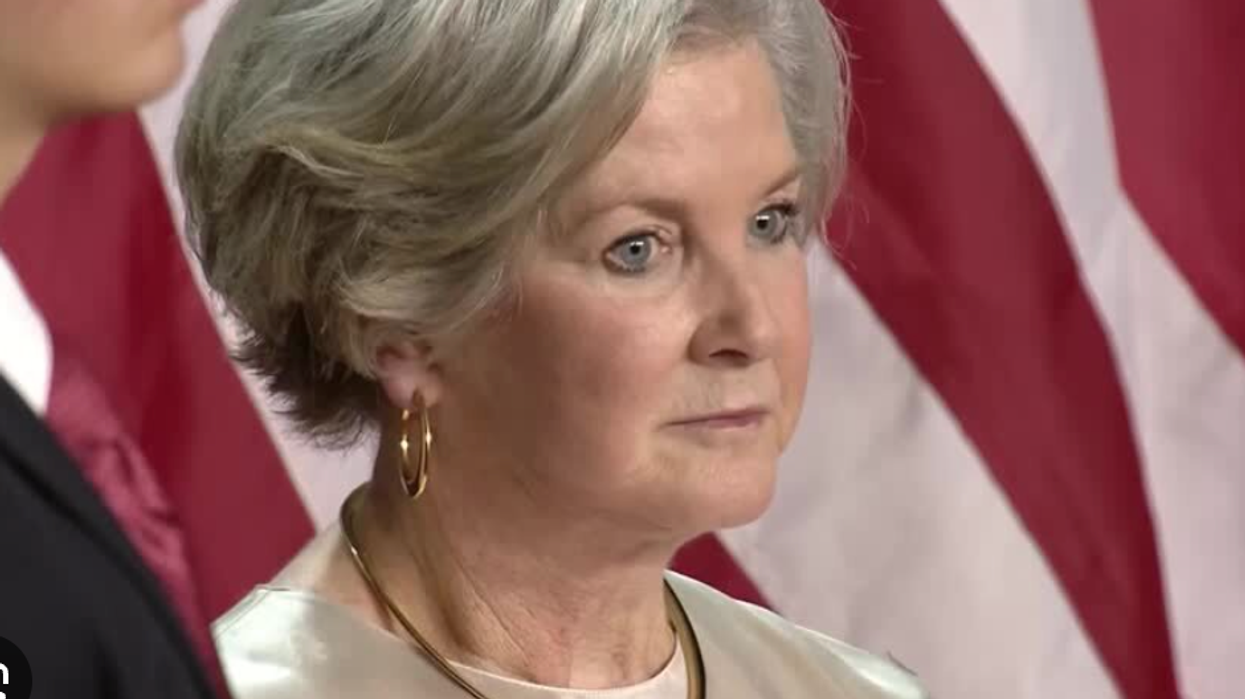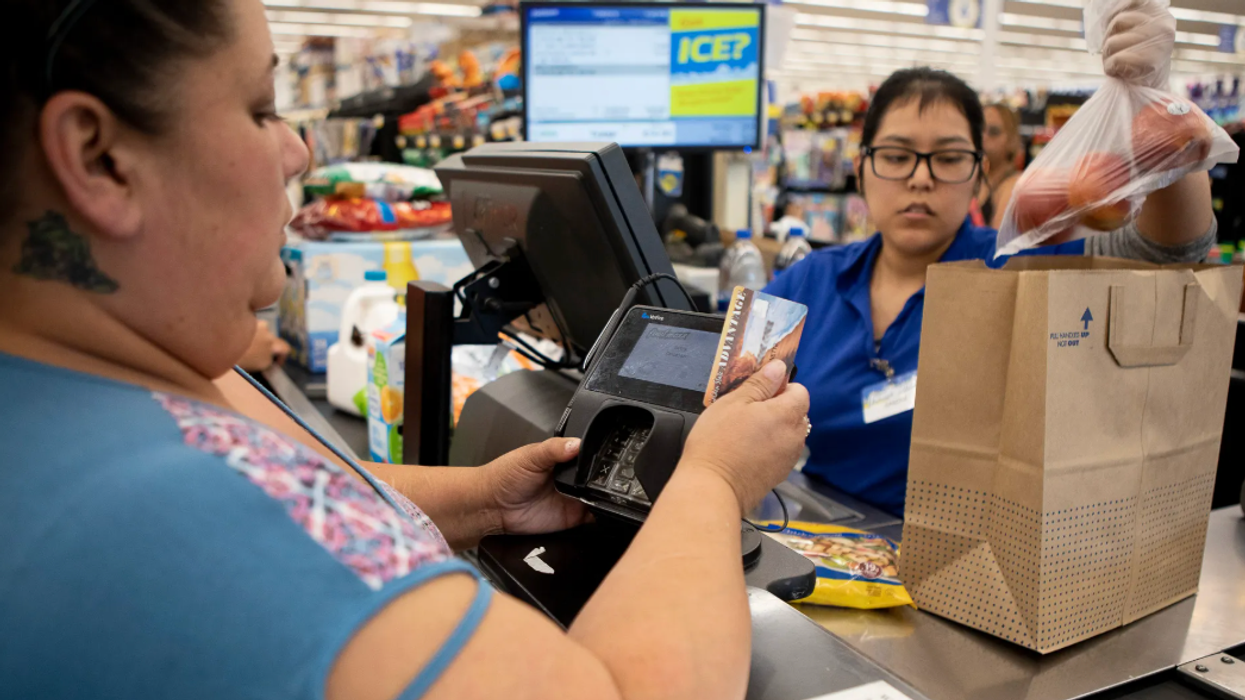WATCH: Trump Nominee Says It's 'Very Based' To Think Women Shouldn't Vote
On May 29, President Donald Trump “nominated Paul Ingrassia, a former far-right podcast host now serving as the White House liaison to the Department of Homeland Security, to a new important role: head of the Office of Special Counsel, an independent corruption-fighting agency that safeguards federal whistle-blowers and enforces some ethics laws,” as reported by The New York Times.
ALAN JACOBY (HOST): I don't want a woman as a vice president. My wife – I am married to the biggest misogynist this side of the Mississippi, by the way.
My wife literally thinks women should not vote. I tend to agree with her a lot –
PAUL INGRASSIA (GUEST): She’s very based.
JACOBY: Unless of course you’re voting for Donald Trump.
…
And Nikki Haley, forget about it. Forget Nikki Haley birdbrain, warmonger. It's – There's no way. I'd have to agree with Tucker Carlson. I'd have a hard time if that was the VP choice because she'll be just eyeing for 2028 or whatever the case is if they could somehow take Trump out, and I just I could not, I couldn't see it.
INGRASSIA: She's so terrible. She's so incompetent. I mean, it's amazing that she even had that position as ambassador to the United Nations. I mean, I can't believe this woman made it so far in her professional political career given how dumb she just sounds on the campaign trail. And the fact that she is so, I mean, she's pretty decently financially supported. I mean, you really just question the sanity of the people who are behind her. I mean, this woman sounds like a child.
She shouldn't even, you know, she shouldn't, she should be stripped of all of her titles. She should be deported if you were to ask me, you know, to tell you the truth, even though I realize she's — I guess she was born here.
Reprinted with permission from Media Matters.












Trump Cabinet Nominee Withdraws Over (Sane) January 6 Comments
Kathleen Sgamma, President Donald Trump’s pick to head the Bureau of Land Management, sent shockwaves throughout Washington, D.C., on Thursday after withdrawing her name just hours before her confirmation hearing.
Republican Sen. Mike Lee of Utah announced Sgamma’s withdrawal at the start of the hearing, but Politico reported that her decision came after investigative outlet Documented published a 2021 memo where the oil and gas lobbyist condemned Trump’s role in spreading misinformation about the January 6, 2021, insurrection.
“I am disgusted by the violence I witnessed yesterday and President Trump’s role in spreading misinformation that incited it. I’m disgusted he discredited all the good work he did reorienting the judiciary back toward respect for the rule of law and constitution by dishonoring the vote of the People and the rulings of those very same judges on his numerous challenges,” the memo quotes Sgamma saying.
Sgamma likely withdrew her nomination not because she’s still upset with Trump, but because the leak of her past comments is embarrassing for both of them. After all, she knew about the Capitol attack when she was nominated and seemed totally on board with Trump’s energy agenda at the time.
While her comments about the insurrection were out of step with today’s GOP, they reflected the outrage that many Republicans shared in the immediate aftermath. And though Sgamma distanced herself from Trump at that time, she’s certainly no liberal—she even contributed to Project 2025.
Trump has continued defending the insurrectionists, calling them “patriots” and even pardoning them on Day 1 of his second term. He’s since doubled down on his false claims that the 2020 election was stolen, insisting that anyone who refuses to spread his lies is the real problem. And it seems that Sgamma has now bought into Trump’s propaganda.
“Unfortunately, at this time, I need to withdraw my nomination. I will continue to support President Trump and fight for his agenda to Unleash American Energy in the private sector,” Sgamma said in her resignation statement.
While some Republican senators told Politico they weren’t given a heads-up about the withdrawal, some Trump allies, including former Interior Secretary David Bernhardt, suggested that Sgamma’s withdrawal was inevitable.
“Individuals who know their views don’t align with the president… cause needless harm and conflict, hindering the president’s agenda,” he wrote on X.
Sgamma’s resignation marks the third Trump cabinet pick to either withdraw or have their nomination pulled.
Earlier, the White House backed off nominating Rep. Elise Stefanik of New York for United Nations ambassador, fearing losing a reliable GOP vote in their razor-thin House majority. Similarly, David Weldon’s nomination to lead the Centers for Disease Control and Prevention was pulled once it became clear he didn’t have the votes to get confirmed.
With the Bureau of Land Management overseeing energy production on federally owned lands—a key part of Trump’s second-term priorities—it remains to be seen whether his energy agenda will take another hit following Sgamma’s withdrawal.
While her decision may have been political, it also highlights the ongoing consequences of the insurrection, raising questions about whether there’s truly a divide between Trump and those who refuse to embrace his false election claims.
Reprinted with permission from Daily Kos.